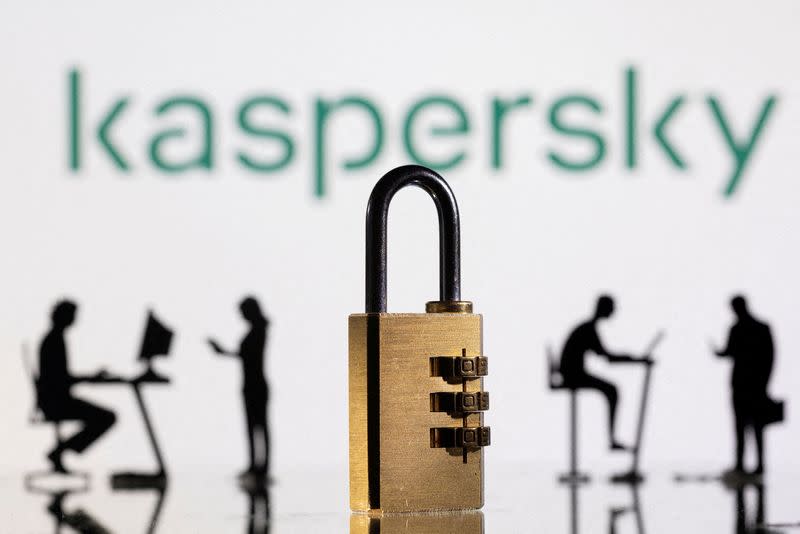US imposes sanctions on Russia's AO Kaspersky Lab executives over cyber risks

- Oops!Something went wrong.Please try again later.
WASHINGTON (Reuters) -The Biden administration slapped sanctions on 12 people in senior leadership roles at AO Kaspersky Lab on Friday, citing cybersecurity risks a day after it announced plans to bar the sale of the Russian company's antivirus software.
The sanctions targeted leadership at the company, including the chief business development officer, chief operating officer, legal officer, corporate communications chief and others.
"Today's action against the leadership of Kaspersky Lab underscores our commitment to ensure the integrity of our cyber domain and to protect our citizens against malicious cyber threats," Treasury Under Secretary Brian Nelson said in a statement.
A Kaspersky spokesperson described the move as "unjustified and baseless," saying it would not affect the company's "resilience" since it does not target the parent or subsidiary companies or its chief executive, Eugene Kaspersky.
The company denied any ties to any government or any links between the designated officials and Russian military or intelligence authorities.
The moves show the Biden administration is trying to stamp out any risks of Russian cyberattacks stemming from Kaspersky software and keep squeezing Moscow as its war effort in Ukraine has regained momentum and the United States has run low on sanctions it can impose on Russia.
AO Kaspersky is one of two Russian units of Kaspersky Lab placed on a Commerce trade-restriction list on Thursday for allegedly cooperating with Russian military intelligence to support Moscow's cyber-intelligence goals.
That move was coupled on Thursday with an unprecedented ban on sales, resales and software updates for Kaspersky products in the United States starting Sept. 29.
U.S. authorities say the software poses serious risks, citing Russia's influence over the company, the software's privileged access to a computer's systems which could allow it to steal sensitive information from American computers, and its ability to install malware and withhold critical updates.
The designation announced Friday prohibits American companies or citizens from trading or conducting financial transactions with the sanctioned executives and freezes assets held in the United States.
(Reporting by Kat Jackson, Doina Chiacu and Alexandra Alper; Editing by Rod Nickel, Louise Heavens and Rosalba O'Brien)

